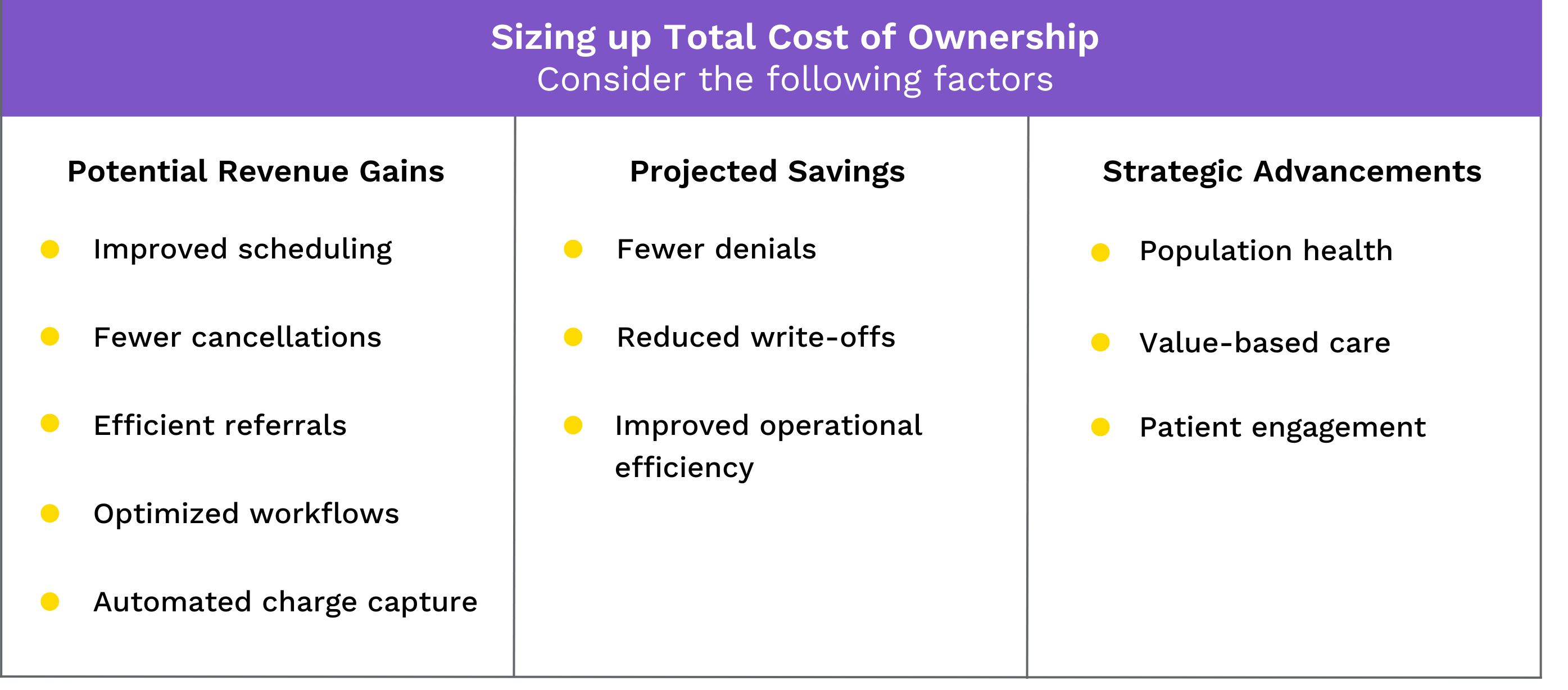Article
Considering an EHR Transition? Answer These Six Questions First
Converting your electronic health record (EHR) system is a big decision. While understanding the technical requirements is key, you’ve also got stakeholders, resources, timing, integrations, and other factors to consider. It can be hard to know where to begin.
Here are the first questions to ask when considering a different EHR platform. They’ll get you thinking about what’s important so you make the right call for your patients, providers, staff, and bottom line.
1. Assess Your Current State: What do clinicians and staff like and dislike about your current EHR system?
Is your existing system adding hours of administrative work, creating scheduling bottlenecks, or limiting patient access? Understanding the needs, frustrations, and goals of your system’s superusers—clinicians and staff interacting with the system daily—is vital to analyzing your current state.
2. Identify Non-Financial Benefits: What non-financial benefits can you realize through an EHR transition?
These include caregiver satisfaction, patient engagement, and integration of additional specialties. Get clarity on all the benefits by continuing to seek out the views of providers and all stakeholders early on. The more you know about the needs of your stakeholders, the better. Involving them in the process will help ensure the EHR decision addresses clinician pain points.
Define what success looks like. Why are you making this investment? Understand the why, define it, and then measure it.
ROB HOEHNEManaging Director, Enterprise Systems
3. Calculate Total Cost of Ownership: What is the total cost of ownership of your current system, and how does it compare to the projected costs of a new platform?
An accurate cost model is essential for knowing the answers. It should calculate expected revenue gains, projected savings, and modernization capabilities that further your organization’s strategic objectives.

4. Keep Pace With Market Trends: What market trends should you consider to ensure your system is future-ready?
A few market trends that are getting a lot of attention are leveraging the flood of valuable data, increasing interoperability, improving “digital front door” experiences, using managed services like TaaS (telemedicine as a service), and giving physicians better outlets to be innovators. Rapid advances in artificial intelligence mean these trends are in constant flux.
5. Evaluate Your Hosting Model: Does your current hosting model align with the needs of your organization?
We’re seeing a huge uptick in national disaster events, so ensuring that you’ve got a recoverable disaster solution in place that puts your data someplace well outside of the affected areas is even more important now than it used to be.
CHAD SKIDMOREVP, Technical Services
How well do you know your data? Is your current application suite best suited for a public, private, or hybrid hosting model? Do you need to move data from on-premises servers to a more flexible, resilient cloud environment? Working with a qualified, experienced partner early in your assessment process can help you determine how much data storage you need and which types of environments to consider. These critical decisions lay the groundwork for many others and can steer you in the right direction as you plan your next steps.
6. Select a Partner: Which vendors are well-positioned to assist with an EHR transition?
What information are you overlooking? How can you move from planning to implementation seamlessly if you want to transition to another EHR platform? Most HCOs will need extra support when transitioning to a different platform. Look for a partner with direct healthcare experience to help you navigate decision-making, project planning, implementation, and training, so you can maximize your EHR’s potential.